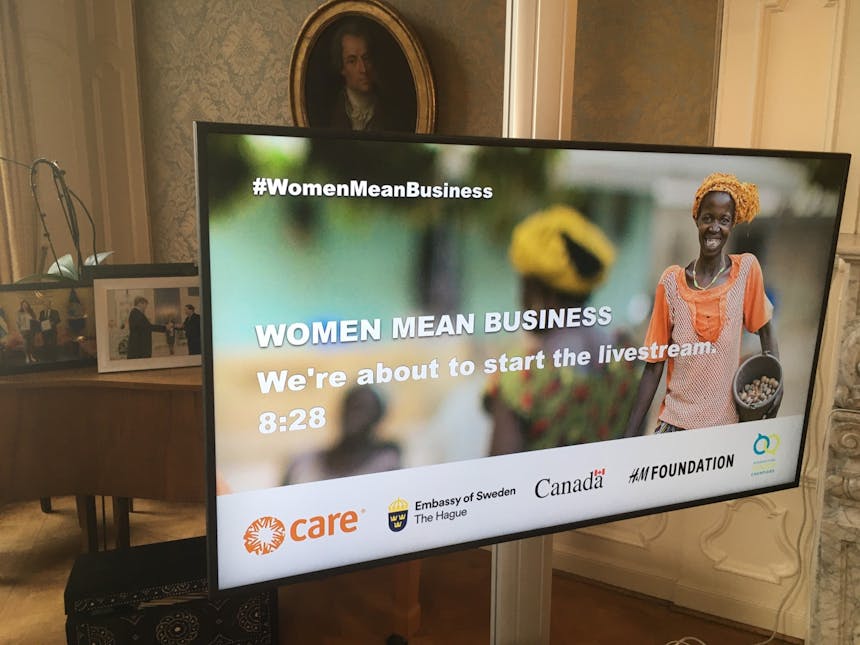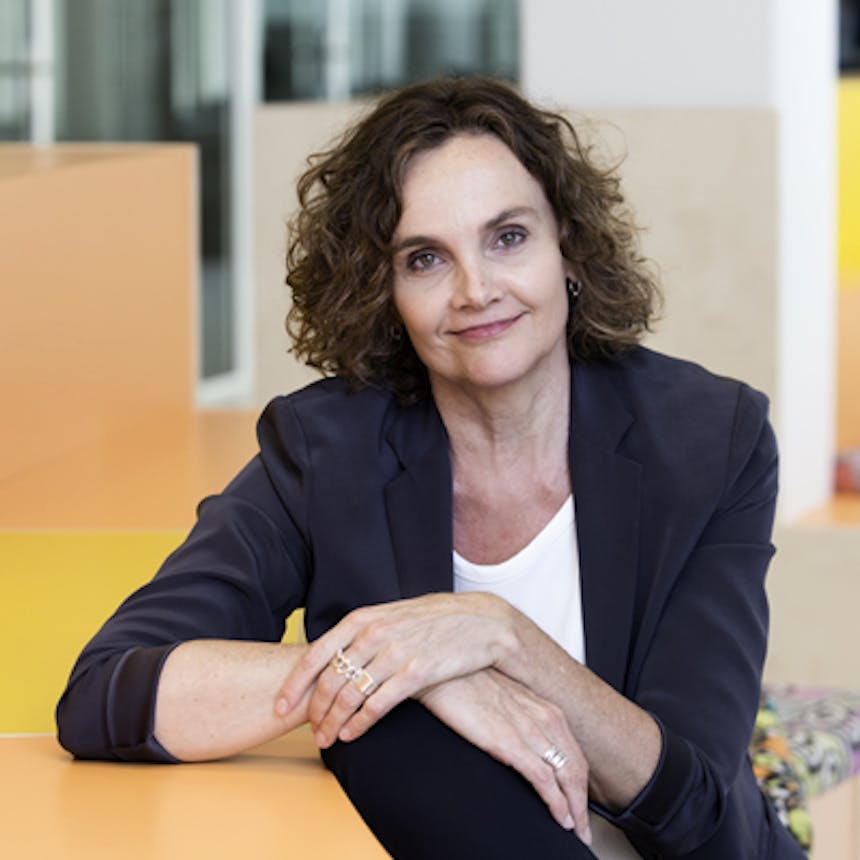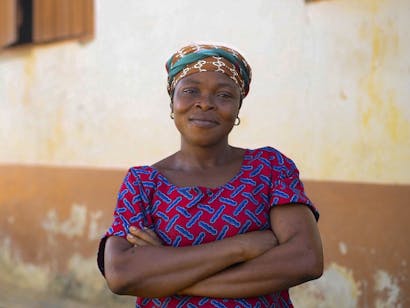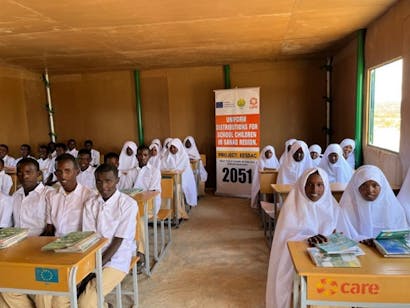When women do business, they mean business
On Tuesday 16 June 2020 CARE Nederland organized the ‘Women Mean Business’ event in support of women entrepreneurs in low-income communities. The event was organized in partnership with the Embassies of Sweden and Canada in the Netherlands.

In this article, we share what was discussed during the event, including women’s business successes, the impact of the coronavirus crisis, and the next steps in achieving women’s economic justice and rights. Viewers from 36 countries joined us to learn about enterprise development in low-income communities. The full webcast of the event can be viewed via this link.
The Ambassadors of Sweden and Canada in The Netherlands introduced the event. Ambassador Helfand of Canada stated in her remarks:
“The impacts of COVID-19 aren’t gender blind, so our response can’t be gender blind either. Promoting gender equality and empowering women is key to building an inclusive and prosperous world.”
Women in Enterprise: Essential components to enterprise development
Entrepreneurship can offer a clear route out of poverty for women in low-income communities. It is a powerful way for women to earn an income and contribute to their communities. CARE Nederland in partnership with the H&M Foundation is supporting women around the world to start and run their own businesses. Solange Hai, Programme Manager at CARE Nederland, launched the Women Mean Business report outlining the programme results and the components to supporting women entrepreneurs. The report is available here.
“I’m excited about the results that we’ve seen. There’s been a 91% increase in daily enterprise earnings from these women, and this has a huge impact on their lives. We’ve also seen that bank account ownership has more than doubled, and there’s a 33% increase of women in leadership positions.”
Beyond the impact of the programme on women entrepreneurs, Solange also explained how the programme has resulted in a better understanding of what is needed to make this happen. The components to effectively support women entrepreneurs include strengthening skills, facilitating access to finance and capital, encouraging the power of groups and networks, improving the business environment, and engaging men and boys.
COVID-19: Overcoming the crisis
After years of hard work building their businesses, women entrepreneurs are now severely affected by the coronavirus crisis. In Sri Lanka, 90% of women entrepreneurs from CARE’s programmes say their income has decreased and their supply chains are disrupted; in Guatemala, 96% do not have enough money to buy basic food items. Solange explained how CARE is responding:
“What we’re doing right now within the scope of the programme that we have, is we’ve made some adaptations to provide grants and food for vulnerable families that really aren’t able to satisfy their food needs. We’re also providing masks and hygiene equipment so that businesses can continue running. In Peru, the lockdown is going to be lifted, but the government has said that they need to have biosafety protocols in place. CARE is now working with the businesses to develop biosafety protocols so that they can get started right away.”
Business owner Dorcas Taylor-Tucker from Sierra Leone contributed remotely to the Women Mean Business event. She is one of the women impacted by the crisis and explained what’s needed – besides direct support to overcome the current crisis – to support women entrepreneurs:
“Most businesses are almost closed down, some are crumbling. I had a restaurant but because business is not too good with me, I have closed the restaurant. I think training is paramount,
financial support is paramount, and material support is paramount for women.”
Dorcas Taylor-Tucker, founder and coordinator of Real Women in Action, Sierra Leone.

International expert panel: Addressing structural inequalities
International experts from three different continents joined us to address the impact of COVID-19 on gender equality and women’s economic empowerment. Jorim Schraven, Director Impact and ESG at Dutch development bank FMO, explained how the bank is responding to the coronavirus crisis.
“What we see is that often the female entrepreneurs are already a bit more vulnerable than average. They are not in a position to simply set up a completely new business. It’s really about trying to help them in their existing business to preserve income and sit out the crisis.”
Markus Goldstein, Lead Economist Africa at the World Bank:
“We are seeing across the world that more female businesses are closing than men. There are likely two reasons why: The sectors that women are concentrated in are more hurt by lockdown measures. The second is the lower capital base. In Africa in a previous study, we found that even adjusting for business size, women have a lower credit base than men.”
As possible solutions for micro-businesses, he mentioned cash transfers and graduation programs, including training for both business and soft skills. He also stressed the importance of business training done differently: In Togo, business training with a stronger focus on soft skills resulted in higher profits for women in particular.
Sofia Sprechmann, Secretary-General at CARE International, starts by stating that the challenge will not be equal for women and men.
“This pandemic has a very deep impact on women and girls and has really put decades of very hard-won progress for women’s economic rights at risk. Some examples she mentions are the increased burden of unpaid care at home, women’s overrepresentation in informal, low-paid jobs that offer little legal and social protection, and the increased rate of gender-based violence. “It is heartbreaking to see the results and the amazing progress, and seeing that these gains may be at risk. Yet, we actually see now that it’s precisely these women that hold the power to overcome this crisis.”
Asked about the one structural change the experts want to see, they echoed the components to enterprise development – particularly engaging men and boys – and added changes of their own: First, digitization for women is empowering when they have access to digital financial services, and when they can deliver their own services digitally. Learning and education also become more accessible. The second structural change mentioned is broadening the safety net, and thinking about safety programs across the world and how they can contribute to gender equality.
Building a coalition to make a change
The three experts reflected on how different stakeholders can work together to develop a strong crisis response. The crisis has further exposed the structural inequalities, as well as the urgency of investing in gender equality and the need to collaborate across sectors. Moderator Reintje van Haeringen, CEO CARE Nederland:
“With these very different parties that we’ve had around the table today, we don’t speak each other’s language yet, but we’re coming very close. We’re building a coalition here.”
The experts all agreed on the power of partnerships and for each to play their part. Sofia Sprechmann: “We really need additional resources for the COVID response. Let’s work in a joined-up way to support those who hold the power, who are resilient, to overcome this crisis. Recovery in the global South is dependent on these amazing women entrepreneurs.”

Annika Markovic, Ambassador of Sweden to The Netherlands and host for the event, returned to the table to share her reflections:
“I really think that we have many of the answers, and the commitment to really start making a change, so let’s do that now.”
CARE is continuing the Women in Enterprise programme and is committed to supporting women entrepreneurs in low-income communities around the globe. Are you interested in strengthening our joint efforts? Contact Solange Hai: hai@carenederland.org


